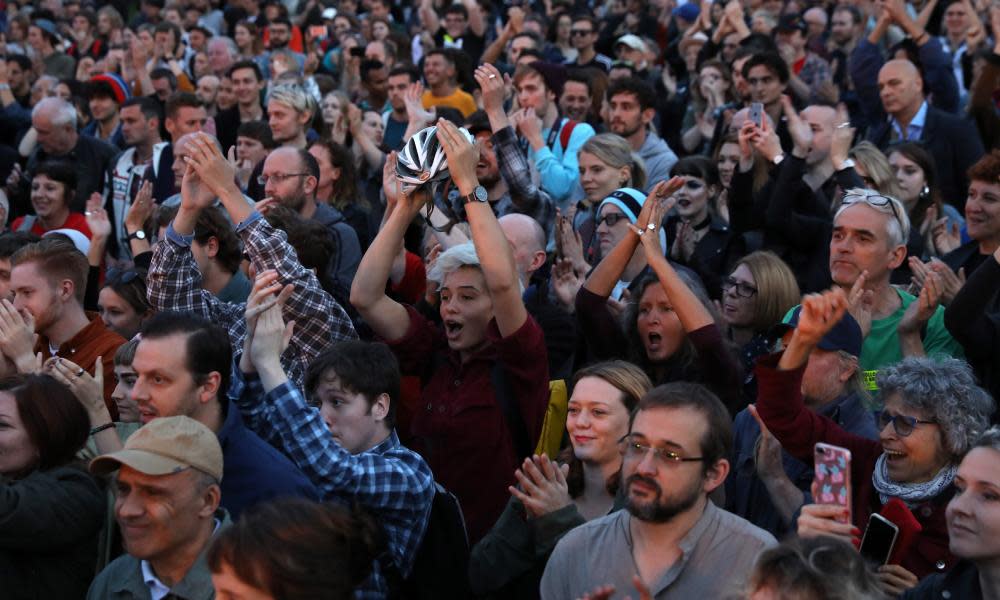As the media obsess over Brexit, they’re missing Labour’s revolution | Owen Jones

A peaceful revolution by the beach: that’s the scene at Labour’s Brighton conference. People who were marginalised, ignored and disparaged by British politics are now the masters of the official opposition. The mood last year was flat; this year, pulsing with energy. The delegates don’t know when an election will be called – but then, the prime minister can’t be sure either. This year the upbeat mood is borne out in the conviction that the party has every chance of marching into government – and with the most transformative agenda since Clement Attlee.
Momentum has been disparaged and demonised by the much of the press, but it has spearheaded Labour’s dramatic transformation. The conference fringe used to be a dry, rather technocratic affair, dominated by top tables of “experts”, MPs and flat question-and-answer sessions. Momentum’s The World Transformed has discussions on everything from the nature of work, the housing crisis and rebuilding Britain’s democracy to the challenges facing a radical left government. But it’s done in a participatory way: meetings break out into groups to discuss and debate the issue at hand.
Activists were once treated as embarrassments, useful only to stuff leaflets into letter boxes. The focus now is on empowerment: activists debate how to give members the confidence to organise in their local parties, stand as candidates and have conversations on the doorstep that go beyond asking people for their voter ID. And when you speak to the delegates and observers at conference, there is a genuine sense that they feel they have now displaced the old party establishment.
It would be easy to miss this unfolding revolution. The media focus has been on, for example, the lack of a vote after the debate on Brexit. Cards on the table: I’d like Britain to stay in the single market and the customs union. That’s the view of most Labour members. John McDonnell’s announcement that there are negotiations about reforming the single market to prevent rules blocking Labour’s ambitious policies is promising. But there is very little dissent here about the lack of a vote at this stage.
Many of the people here in Brighton have waited decades to see the Labour party adopt policies such as public ownership – including seeking to end the disaster of PFI – and taxing the rich to pay for state-led investment. They want the message from conference to be unity around a transformative socialist spirit. Like it or not, they fear that historic achievement would be eclipsed by a divisive vote on Brexit at this stage – they want a long suppressed social democracy to have its time in the sun.
Labour is not yet in power, and there does need to be more wide-ranging debate about how the party, for example, wins over more older people and gets more young people out to vote There needs to be more debate, too, about what challenges would confront the most radical government since Attlee. There is always the danger of excitement being snuffed out by what could be years of opposition to come. But witnessing Labour’s peaceful revolution unfold, it’s clear that this is a historic moment in British politics.
What precedents are there for one of the two main parties in a western nation to be transformed like this, from the bottom up? The peaceful revolution is sweeping all before it in the Labour party. The challenge now is whether it can take that peaceful revolution to the country.
• Owen Jones is a Guardian columnist

 Yahoo News
Yahoo News 
